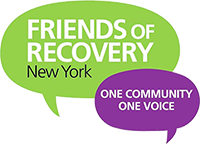Healthy Aging for your Brain: Strategies for Women in Recovery
Healthy Aging for your Brain: Strategies for Women in Recovery
 Saturday, May 17, 2025
Saturday, May 17, 2025
Following a 12-Step Recovery plan usually has three tenets: stop using your drug of choice, go to meetings, and get a sponsor. As we age however, we need to expand our skill set to deal with the risks of chronic disease and dementia. It’s time for Recovery programs to incorporate a wider lens to help women understand better how to take care of our bodies and our brains.
This FREE virtual education experience for women in recovery will explain the “Wheels Of Health” while focusing specifically on nutrition, exercise, sleep, and stress management. By incorporating these healthy strategies into recovery plans and aligning with others doing the same, women can improve their own health while they reimagine the future of 12-Step Recovery for generations of women to follow.
Schedule
| Time | Event |
|---|---|
| 8:30am | Welcome & Housekeeping Carol D'Agostino, LCSW, MA, CASAC (Ret.), Lifespan of Greater Rochester |
| 8:35am | Opening Remarks Angelia Smith-Wilson, EdD, MSW, Executive Director, Friends of Recovery – New York |
| 8:45am | How Healthy Habits Can Help Reduce the Risk of Cognitive Decline Thera Blasio, Program Manager, & Andrea M. Foote, Program Manager, Alzheimer’s Association, Rochester/Finger Lakes Chapter This presentation will provide an overview of Alzheimer’s and other dementia, the impact of substance use on dementia, lifestyle choices to lower risk, and Alzheimer’s Association resources. |
| 9:05am | KEYNOTE Live Your Best Life in Recovery: Life Happens, We’re all Recovering from Something! Sandra Marnell, RNCD, MA, CASAC, NCACII New York Certification Board (NYCB) Approved, Best Practice Trainer for FOR-NY, RCP/F Wellness incorporates all eight dimensions of our lives; emotional, physical, occupational, intellectual, financial, social, environmental, and spiritual parts. Think about your own wellness, your daily routines, habits, and valued life roles and activities and gain some insights to determine what you are doing well and what you may want to start or stop doing to feel better and live longer. Learn about health-promoting behaviors, medically endorsed methods and brain foods that can protect brain function and keep your brain young, healthy, and sharp.Start a new way of living with a new attitude and a new way of taking on your daily challenges. |
| 10:20am | Break |
| 10:30am | Exercise Pillar: Holistic Recovery: Body, Mind, Spirit Kara Izzo, Peer Support Program Manager, ROCovery Fitness At ROCovery, we believe in a whole-body wellness approach to recovery and that the opposite of addiction is connection. As a person in recovery, I have incorporated this into my own life. I will talk about the tools I use in my recovery such as 12-step meetings, meditation, fitness, and connection. |
| 11:00am | Wellness Interlude: Tai Chi Theresa Knorr, CARC RCP-F, Senior Director of Recovery Education and Training Friends of Recovery – New York; Founder: BALANCE Recovery Consultation | Tai Chi 4 Recovery |
| 11:15am | Nutrition Pillar: Healthy Food, Healthy Brain Susan Friedman, MD, MPH, Professor of Medicine, Highland Hospital, University of Rochester Medical Center There are a lot of mixed messages in the press about what foods are “good” and what are “bad” for brain health, and for health overall. This talk will discuss processes like inflammation that affect brain health and how the food you eat impacts those processes. We will review the eating patterns that have been shown to be good for brain health. Finally, we will talk about ways that you can make changes today to be a healthier you! |
| 11:45am | Break |
| 11:55am | Sleep Pillar: From Restless to Rested: Understanding Sleep Health, Sleep Disorders, and When to Seek Help Sullafa Kadura, MD, MBA, Associate Professor of Clinical Medicine, University of Rochester Medical Center We will begin with an overview of the six dimensions of sleep health and provide an opportunity for participants to calculate their own sleep health score. We will then examine how substances can contribute to sleep and sleep disorders, followed by the benefits of sleep during recovery and beyond. Finally, we’ll cover when sleep issues may require medical attention and how sleep medicine can offer support and treatment options. |
| 12:25pm | Wellness Interlude: Yoga Monica Jarzyna, Yoga of 12 Step Recovery |
| 12:40pm | Stress Management Pillar: Writing With the Brain in Mind: Journaling for Well-being Deborah Ross, Center for Journal Therapy The good news from research in the neuroscience world is that wellbeing is a skill that can be learned at any stage of life. Journaling can support building that skill. Learn how to create a writing practice that takes less than 10 minutes, how to enhance Gratitude Journaling, and how to Cluster - the writing technique that can help you manage stress, gives you the big picture view and an easy way to mark milestones on your wellbeing journey. |
| 1:25pm | Closing Remarks & Evaluation |
Sponsors
Credits
Continuing Education Credits (PENDING) – 3.75 CASAC/CPP/CPS renewal credits from OASAS EPT#1202 – Friends of Recovery - NY. No partial credit, full attendance required.
Professional Development Credits (PENDING) – 3.75 CARC/CRPA recertification credits – New York Certification Board (NYCB) trainer registry member. No partial credit, full attendance required.



